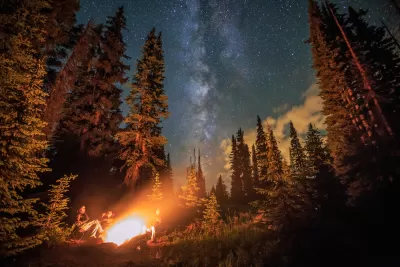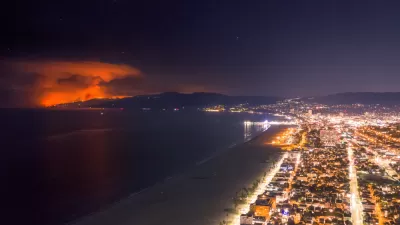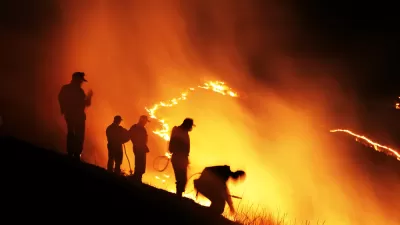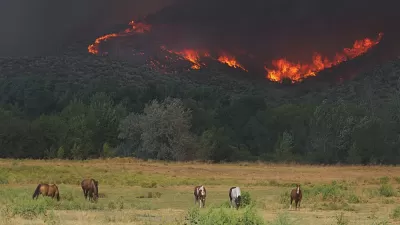Regulators are increasingly requiring outdoor adventurers to enjoy wilderness excursions without the solace and warmth of a campfire, as the drought and heat of climate change leaves natural areas ready to spark and burn year-round.

Conrad Swanson reports from Colorado, where campfires, that enduring symbol of the American West and the great outdoors, are increasingly illegal.
“The days of explorers ambling into Colorado’s backcountry, gathering kindling and sparking a fire for some supper and perhaps a s’more or two are gone,” writes Swanson for the Denver Post.
“Despite the spring months historically serving as a wet time of year, especially as snowpack begins to melt off, as of Tuesday, 24 of Colorado’s 64 counties and one Native American tribe reported at least some fire restrictions in place,” reports Swanson.
Regulators use a metric called energy release component (ERC)—basically the moisture levels in plants—to determine how hot a fire would burn and set campfire regulations accordingly. The ERC is up by as much as 50 percent around the American West, according to research and an expert cited in the source article.
Both state and federal land managers are responsible for the bans, which have become commonplace as wildfire risks grows and the state looks to protect not only its natural and built environments, but its $37 billion outdoor recreation economy.
FULL STORY: No more s’mores: Is this the end of campfires in Colorado?

Alabama: Trump Terminates Settlements for Black Communities Harmed By Raw Sewage
Trump deemed the landmark civil rights agreement “illegal DEI and environmental justice policy.”

Study: Maui’s Plan to Convert Vacation Rentals to Long-Term Housing Could Cause Nearly $1 Billion Economic Loss
The plan would reduce visitor accommodation by 25% resulting in 1,900 jobs lost.

Planetizen Federal Action Tracker
A weekly monitor of how Trump’s orders and actions are impacting planners and planning in America.

Wind Energy on the Rise Despite Federal Policy Reversal
The Trump administration is revoking federal support for renewable energy, but demand for new projects continues unabated.

Passengers Flock to Caltrain After Electrification
The new electric trains are running faster and more reliably, leading to strong ridership growth on the Bay Area rail system.

Texas Churches Rally Behind ‘Yes in God’s Back Yard’ Legislation
Religious leaders want the state to reduce zoning regulations to streamline leasing church-owned land to housing developers.
Urban Design for Planners 1: Software Tools
This six-course series explores essential urban design concepts using open source software and equips planners with the tools they need to participate fully in the urban design process.
Planning for Universal Design
Learn the tools for implementing Universal Design in planning regulations.
Caltrans
Smith Gee Studio
Institute for Housing and Urban Development Studies (IHS)
City of Grandview
Harvard GSD Executive Education
Toledo-Lucas County Plan Commissions
Salt Lake City
NYU Wagner Graduate School of Public Service





























